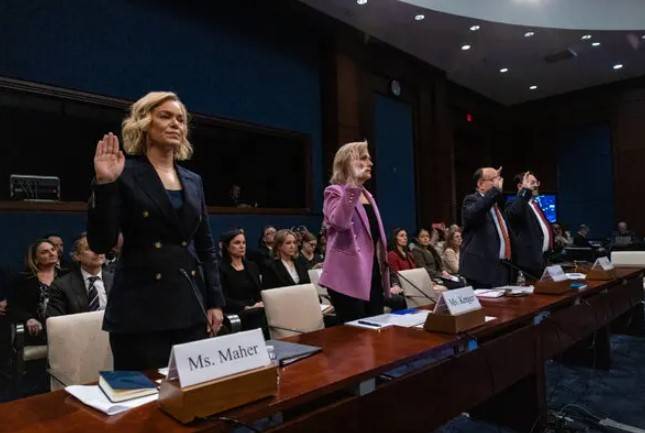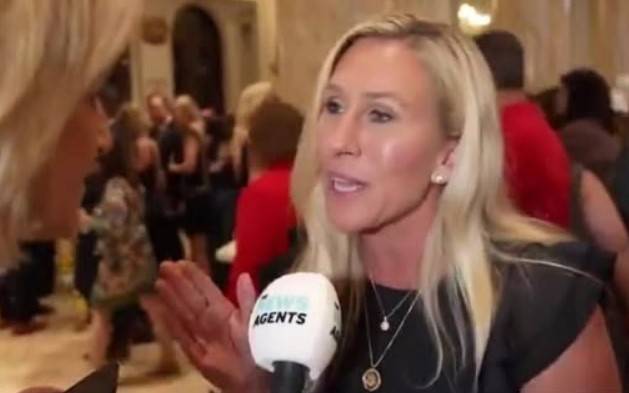For Rep. Marjorie Taylor Greene and other House Republicans, today’s DOGE subcommittee hearing was an opportunity to attack PBS and NPR, branding them as biased and pushing for their defunding.
For public broadcasters, however, the hearing was about more than just defending their funding—it was a fight for their existence and a chance to educate lawmakers and the public about how public media actually operates.

Titled “Anti-American Airwaves: Holding the Heads of NPR and PBS Accountable,” the hearing kicked off at 10 a.m. ET, with NPR CEO Katherine Maher and PBS CEO Paula Kerger testifying alongside a local station operator and a conservative critic of taxpayer-funded media.
The hearing echoed long-standing Republican arguments against public broadcasting, with claims that NPR and PBS promote liberal bias, misuse taxpayer dollars, and push a progressive agenda.
Leading the charge, Rep. Marjorie Taylor Greene didn’t hold back. She labeled PBS and NPR as “radical left-wing echo chambers” and accused them of “grooming and sexualizing” children, setting newsroom standards based on diversity, equity, and inclusion (DEI), and misusing public funds.
“For too long, taxpayers have been asked to fund biased news. This needs to end, and it needs to end now,” Taylor Greene declared in her opening remarks.
Former President Donald Trump added fuel to the fire, calling NPR and PBS a “waste of money” on Tuesday and stating that he “would love to” see them defunded, as stated on MSN.

Yet, despite the Republican attacks, public media remains funded—for now. The spending bill passed by Congress and signed into law by Trump earlier this month included $535 million for the Corporation for Public Broadcasting (CPB), which distributes funds to over 1,500 local radio and TV stations nationwide.
As Republicans continue their efforts to cut funding for NPR and PBS, public broadcasters are left to make their case: that they provide a crucial service to Americans, offering educational content, independent journalism, and local programming that commercial networks often overlook.
With the battle over public media heating up, one thing is clear: this debate is far from over.